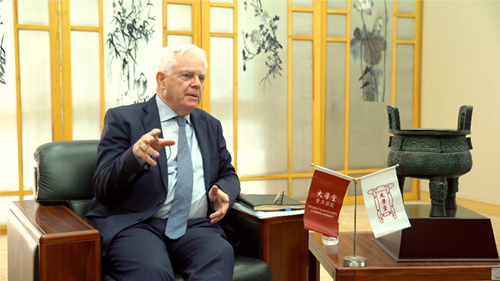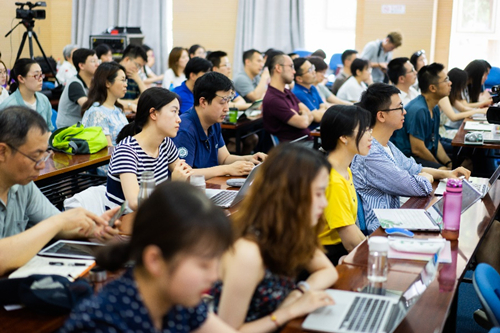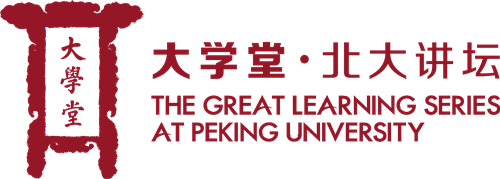Peking University, Sep. 9, 2019: Out of the plethora of theories on higher education development, Professor Simon Marginson identifies student self-formation as the most fundamental philosophy underpinning education reform. He found that the ethos resonates with ongoing changes in the landscape of higher education not only in the UK, but also in China in his recent visit to Peking University. His lecture has been collected in “The Great Learning Series at Peking University”.
As a philosophy and practice of education, self-formation has its first and most important antecedent in Confucian learning as self-cultivation. Through evaluation over thousands of years, self-formation is now realized in China in ways that are similar to the UK in some aspects yet different in many others. As top-notch universities in their respective countries, Peking University and the University of Oxford are typical of such education strategies.
Peking University vs. University of Oxford
Both Peking University and University of Oxford boast a range of areas of knowledge and the number of experts in many areas. In recent years, Peking University has been catching up rapidly and is ranked among world-class universities by internationally recognized indicators. Nonetheless, indicators per se could not explain the strength and uniqueness of this university, the beautiful garden campus, the history associated with values and traditions that influence today’s teaching and learning, and the importance of Peking University to the nation. Over the years, the university has been getting “larger, more confident, cleaner and more beautiful, and clearly good at its job”.
However, there are still certain aspects that Peking University could learn from Oxford. In Professor Marginson’s view, the UK has a long tradition of really good intellectual work and has accumulated deep knowledge and strong scholarship over a period of time, resulting in high standards. He sees that these standards are still being made in China, though he believes they will be realized successfully. Physics and engineering take the lead, while in the field of education standards are not in place in many cases.

The Faculty and the Students
Much like everywhere else, in Peking University the senior professors are confident and do well; Emerging middle-level or mid-career people work hard on their tenure and publications and promotion; and young faculty are looking for advancement and try to get hold of opportunities for career development.
Different from the assumed stereotype of “reserved” and “silent” Chinese students, in Professor Marginson’s view, the students of Peking University are polite but noisy. They are respectful of others, generous to others, and considerate of the group. They are confident, having no hesitation in speaking out, and even laughing and joking loudly.
“Hard work” is still seen as hallmark of students of Peking University, like most Chinese students and Asian students. In the UK, some students resist the idea of hard work, whereas Chinese students are more committed to work, and they know that matters. Students enjoy the work, hours and days of work, day after day, cheerfully, and make it happen.
In contrast, critical thinking is valued more in the UK than in China, Professor Marginson notes. In the UK, a first class degrees means the graduates really have done well, which is demonstrated in that they can do original work, have their own ideas, think critically in their discipline. Critical thinking counts.

University Ranking and Self-formation
People often refer to international university ranking to judge the quality of a university. Are Times Higher Education and QS accurate, reliable, and valid scientifically? Professor Marginson questions this. He prefers Shanghai Jiaotong’s academic ranking of world universities, notes that a strong all-round university such as National University of Singapore still struggles in the ranking because of a lack of Nobel Prize winners.
Maybe none of the well-known rankings is really useful as an indicator of where each university stands, he says, except for the research performance aspect. Many things are missed out in university ranking. Professor Marginson stresses that typically the rankings do not say anything meaningful about teaching or learning. Yet eventually it is in the teaching and learning that student self-formation is shaped. He recommends the strategy of lifting the performance of teaching and learning. This should be as important as research, but it won’t show up in the rankings.
About The Great Learning Series at Peking University:
The Great Learning Series at Peking University is a brand-new global-facing speech platform created by Peking University with the purpose of gathering distinguished guests from all around the world, bringing together ideas and wisdom, sharing knowledge and values, and presenting remarkable speeches to the world through bilingual videos.

Reported by: Wang Yan
Edited by: Zhang Jiang




